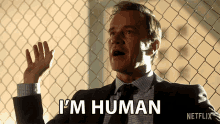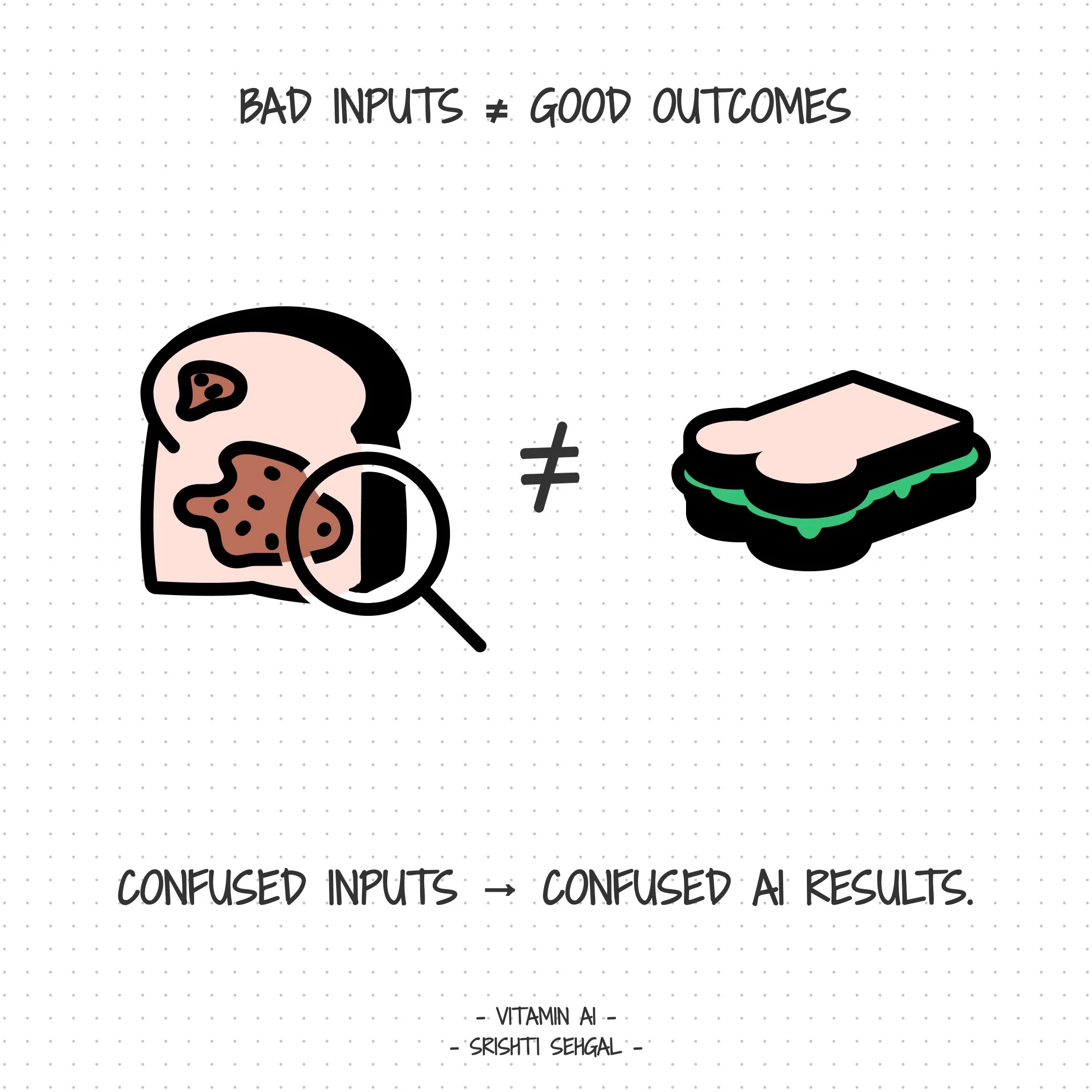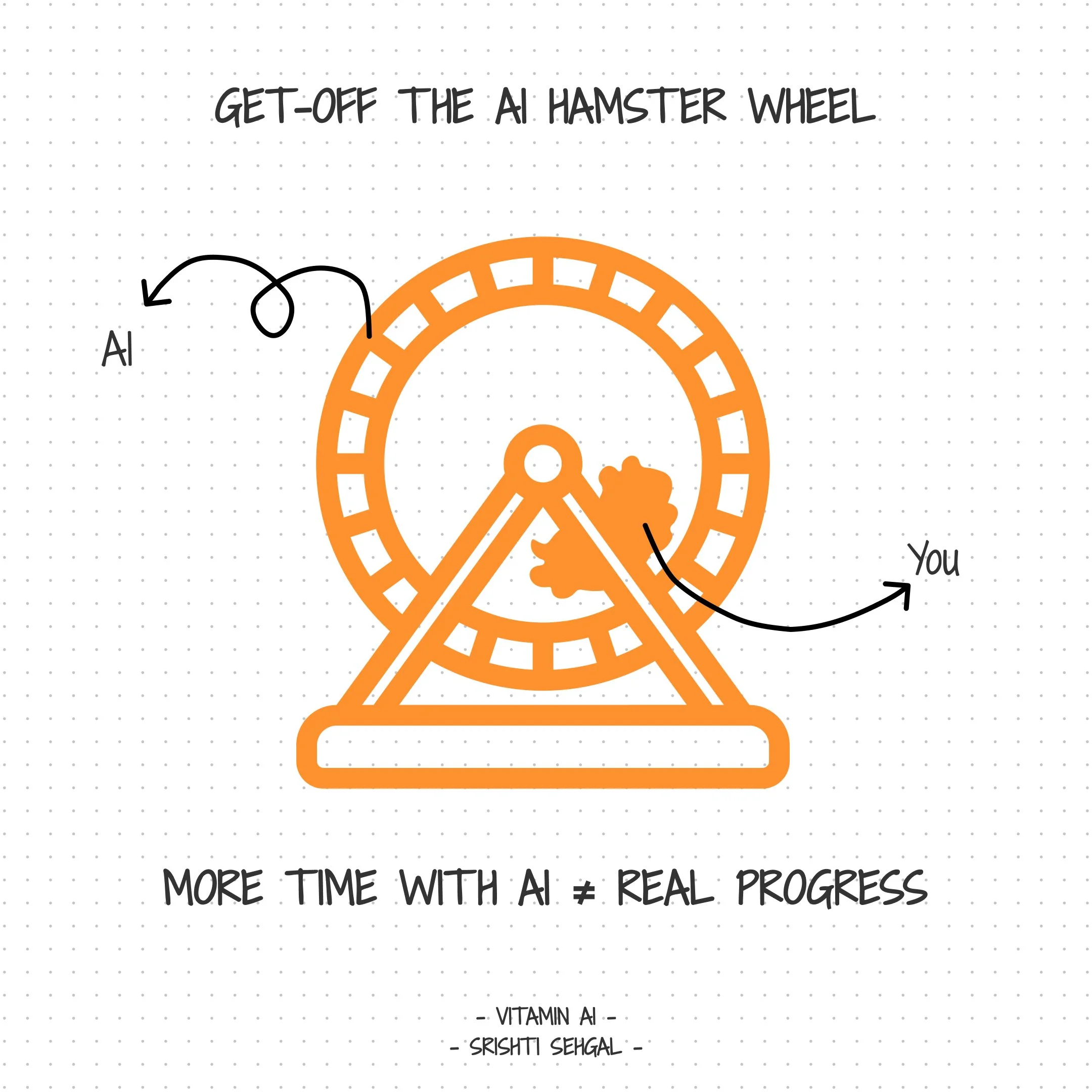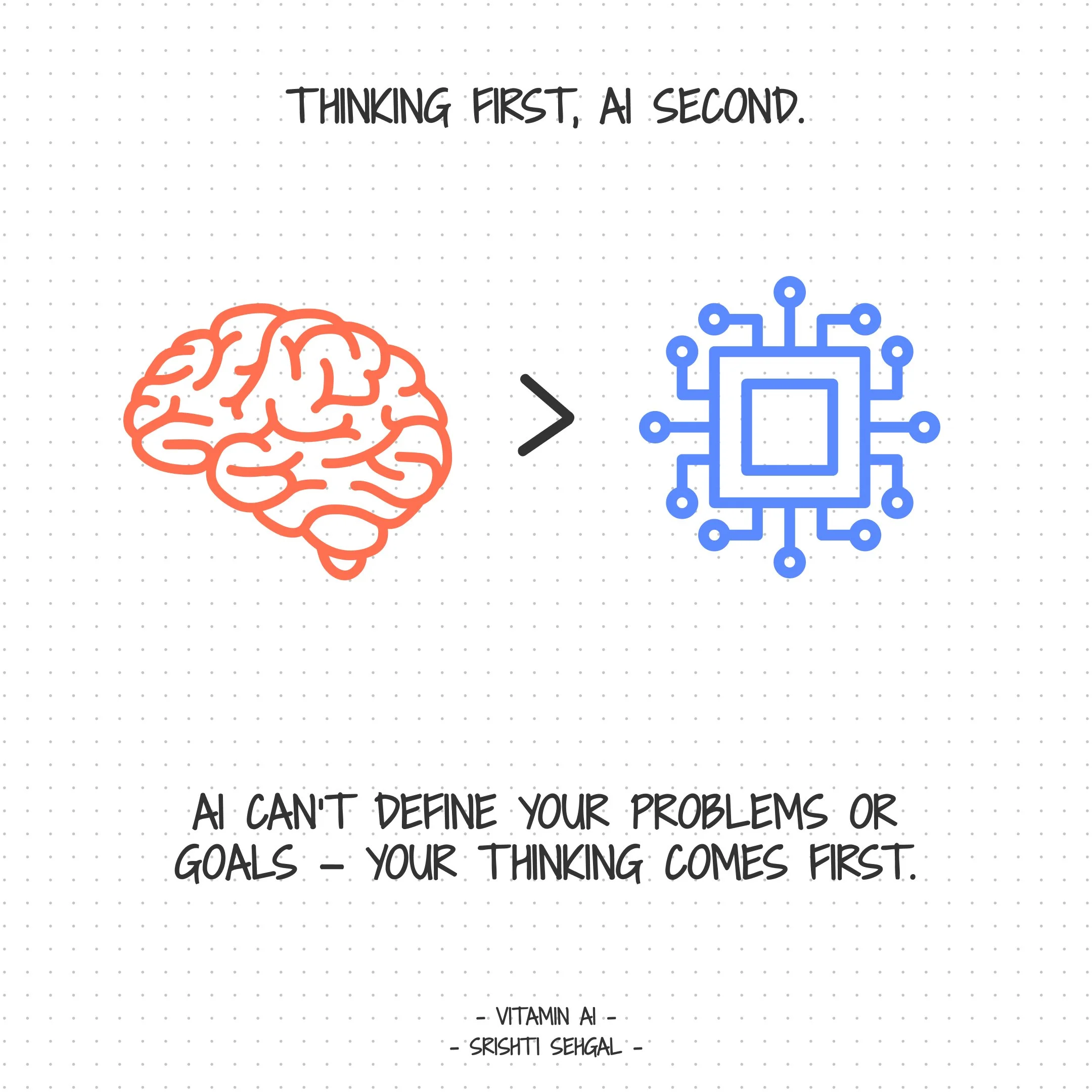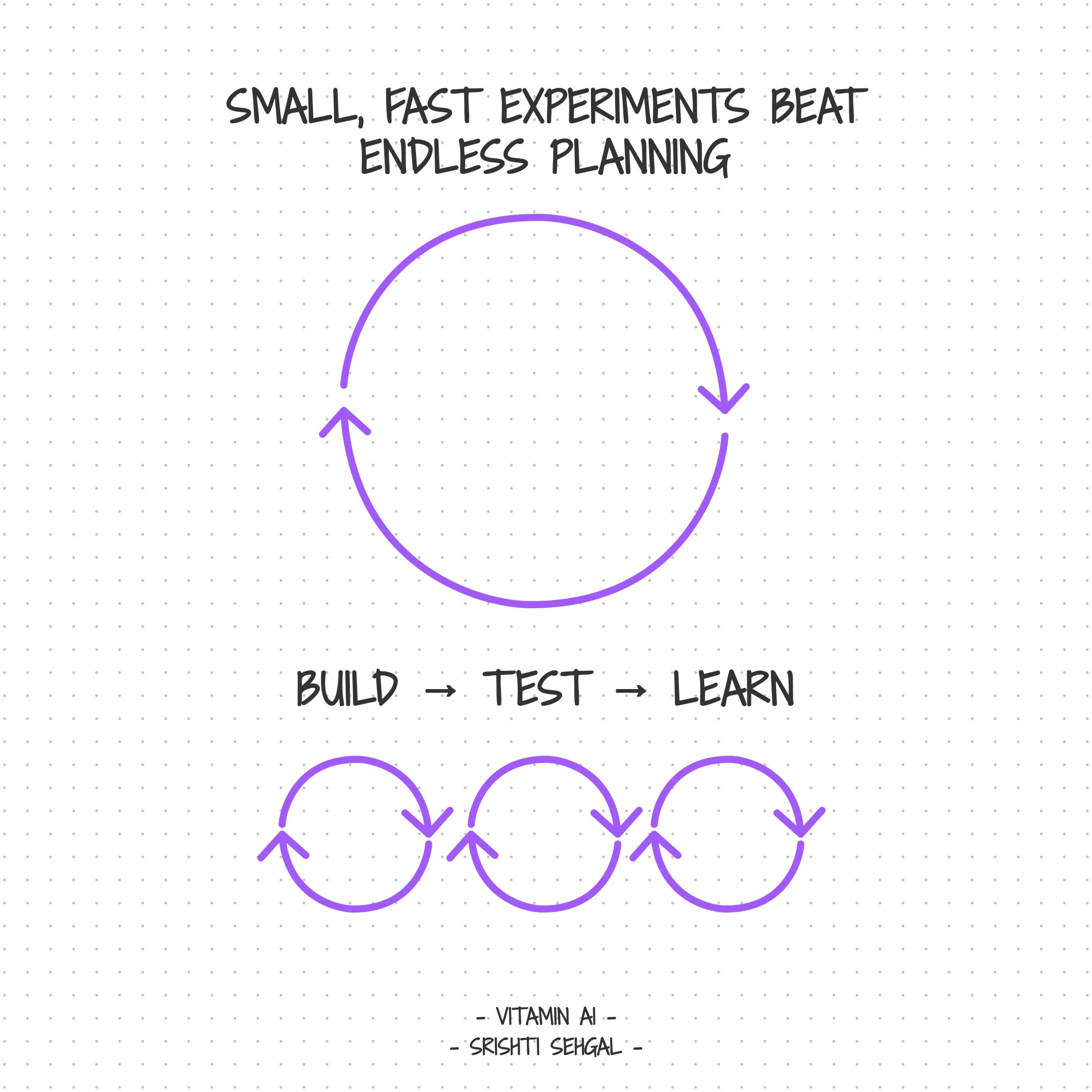Week #1 Summary: From info overload to meal plans!
🫣 Tl;dr
⏳ Spent ~3.5 hours running 2 experiments (Digital Diet, Meal Planning) — feeling clearer on what’s possible, but also humbled by how much good AI work depends on good human thinking.
💡 What I Learnt This Week
🔪 Bad ingredients cooked well don’t make good food.
No matter how powerful AI is, if I’m confused about the problem, it will only amplify the confusion - clarity of inputs is everything. In my Digital Diet experiment (More on this below!), I jumped in without fully defining what “staying updated” really meant for me, which led to scattered ideas and wasted time.
🎡 Beware the AI hamster wheel.
Spending hours tinkering with AI feels productive, but can end up going in circles if I’m not moving toward a concrete goal — like my Digital Diet rabbit hole. I spent 3 hours thinking I was making progress, only to realize I hadn’t actually moved forward.
🧠 AI can’t replace thinking.
Defining context and articulating the real problem is still my job; AI can’t (yet) do the nuanced work of understanding what truly matters. In both experiments, I had to step back and clearly define what a “useful Digital Diet” or a “practical meal plan” looked like before AI could help.
🏃♀️ Shorter feedback loops = smarter experiments.
Building quick MVPs — like my Week 1 meal plan — helped me learn faster and adjust in real-time. Testing a week’s plan in real life immediately showed what worked and what needed tweaking, instead of spending weeks perfecting a plan on paper.
🧪 Experiments Run
Digital Diet (Week 1)
Goal: Build a system to stay updated on broad topics without overwhelm.
What I did: Designed a 5-week plan, tested manual “Daily Doses” in Notion, explored Claude Artefacts.
What I learnt: The problem was too vague initially; after ~2.5 hours, I realized I needed to sharpen my goals before diving deeper.
Meal Planning (Week 2)
Goal: Create a monthly meal plan to reduce decision fatigue and align with protein goals.
What I did: Brain dumped constraints, iteratively co-designed a Week 1 plan with ChatGPT, tested it in real life, and identified practical tweaks.
What I learnt: Testing an MVP meal plan surfaced real-life challenges (like leftover portions) and clarified what I need in the full system.
📚 AI Vitamins I Took
AI Fluency Meta-Frameworks – by Claude Academy
A brilliant course on AI fluency that helps you build a solid understanding of AI concepts, limitations, and practical uses — while also reflecting on your own AI practice and developing a more robust, confident vocabulary.
AI-Native L&D Teams – by Lavinia Mehedintu
Explores how L&D teams will need to rethink their roles, processes, and skills to become truly AI-native — highlighting the need for new ways of thinking and a fresh “operating system” for how they work.
Assess Your AI Team Readiness – by Ross Stevenson
An interactive tool to benchmark your team’s AI maturity and identify areas for growth. Perfect if you’re leading a learning team and want to understand where you stand on the AI readiness spectrum.
💬 Want share your own tips on using AI or run an experiment together?
Reach out — I’d love to hear from you!
Subscribe to my newsletter and get this directly in your inbox.
